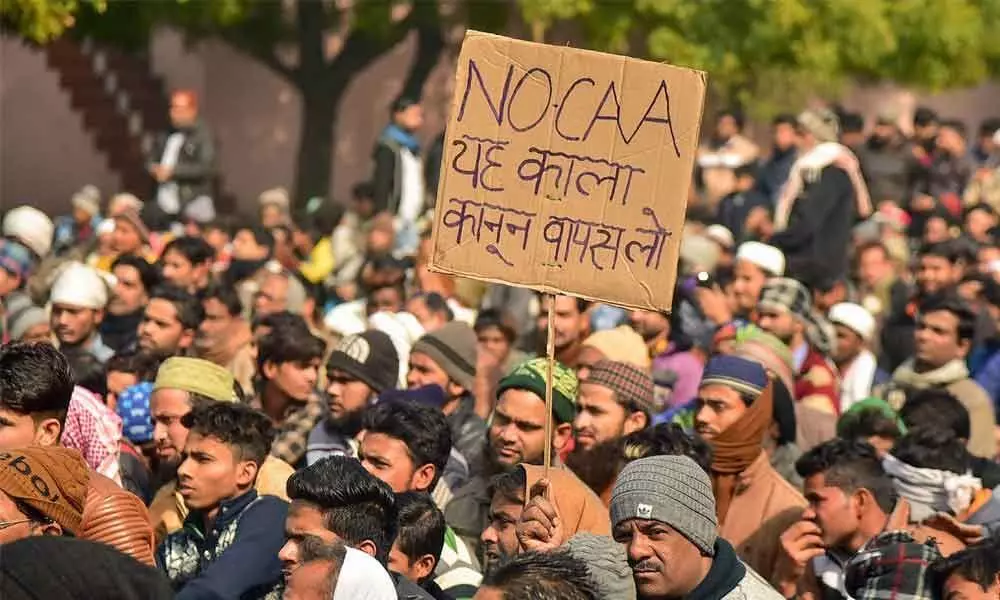SC refuses to stay CAA, refers it to 5-judge Bench

Hearing a batch of 143 petitions, an apex court Bench headed by Chief Justice S A Bobde issues notice to the Centre and restrains all high courts from hearing pleas on the CAA till it decides on the pleas
New Delhi: The Supreme Court on Wednesday refused to put on hold the Citizenship (Amendment) Act (CAA), which is at the core of nationwide protests, and gave the Centre four weeks to respond to petitions on the law, making it clear that it would not grant any stay without hearing the government. The court also said a five-judge Constitution Bench will give an interim order on the petitions on the law.
The Supreme Court also restrained all High Courts from hearing petitions on the CAA before it decided on those pleas. Petitions linked to Assam and Tripura will be taken up separately as the problem with CAA in these two states is different from rest of the country, said the three judges. A Bench headed by Chief Justice SA Bobde is hearing 143 petitions, mostly challenging the validity of the CAA.
Attorney General KK Venugopal, appearing for the Centre, told the judges that the government had been given copies of around 60 of those petitions. He requested time to respond to the rest.
Senior lawyer Kapil Sibal urged the court to defer the implementation of National Population Register (NPR) for the time being. The citizenship law, which makes religion a criterion for Indian citizenship, says non-Muslim minorities from Muslim-majority countries like Pakistan, Bangladesh and Afghanistan can become citizens easily if they fled religious persecution and entered India before December 31, 2014. Critics believe the CAA, along with the NRC or citizen's list, will be used to target Muslims.
The NPR, which is seen to be a precursor to the NRC and asks people to produce birth documents, has been stopped in many states. The petitions argue that the new law is illegal and violates the basic secular structure of the Constitution as it makes religion the basis of Indian citizenship. The petitioners include political parties like the Congress, DMK, CPI, CPM, Indian Union Muslim League or IUML, Asaduddin Owaisi's All India Majlis-e-Ittehadul Muslimeen and Kamal Hassan's Makkal Needhi Maiam.
The hearing took place in a packed courtroom where even lawyers could not enter.
"This matter is uppermost in everyone's mind," said Chief Justice Bobde when the Attorney General complained about the chaos and urged the court to do something.
"Because of the unmanageable crowd, we may hear some small matters in chambers and lawyers can come in chambers," said the top judge. On January 9, the Supreme Court had refused to rule on a plea that the citizenship law be declared "constitutional", saying the country is "going through difficult times" and the endeavour should be for peace. "This court's job is to determine validity of a law and not declare it as constitutional," the judges said.














